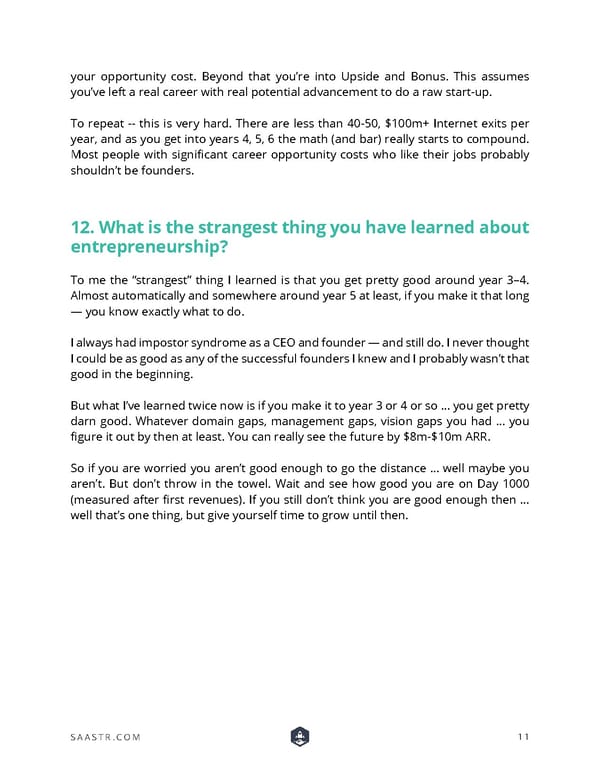your opportunity cost. Beyond that you’re into Upside and Bonus. This assumes you’ve left a real career with real potential advancement to do a raw start-up. To repeat -- this is very hard. There are less than 40-50, $100m+ Internet exits per year, and as you get into years 4, 5, 6 the math (and bar) really starts to compound. Most people with significant career opportunity costs who like their jobs probably shouldn’t be founders. 12. What is the strangest thing you have learned about entrepreneurship? To me the “strangest” thing I learned is that you get pretty good around year 3–4. Almost automatically and somewhere around year 5 at least, if you make it that long — you know exactly what to do. I always had impostor syndrome as a CEO and founder — and still do. I never thought I could be as good as any of the successful founders I knew and I probably wasn’t that good in the beginning. But what I’ve learned twice now is if you make it to year 3 or 4 or so … you get pretty darn good. Whatever domain gaps, management gaps, vision gaps you had … you figure it out by then at least. You can really see the future by $8m-$10m ARR. So if you are worried you aren’t good enough to go the distance … well maybe you aren’t. But don’t throw in the towel. Wait and see how good you are on Day 1000 (measured after first revenues). If you still don’t think you are good enough then … well that’s one thing, but give yourself time to grow until then. SAASTR.COM 11
 The Ultimate Guide For Scaling Sales & Raising Capital Page 14 Page 16
The Ultimate Guide For Scaling Sales & Raising Capital Page 14 Page 16